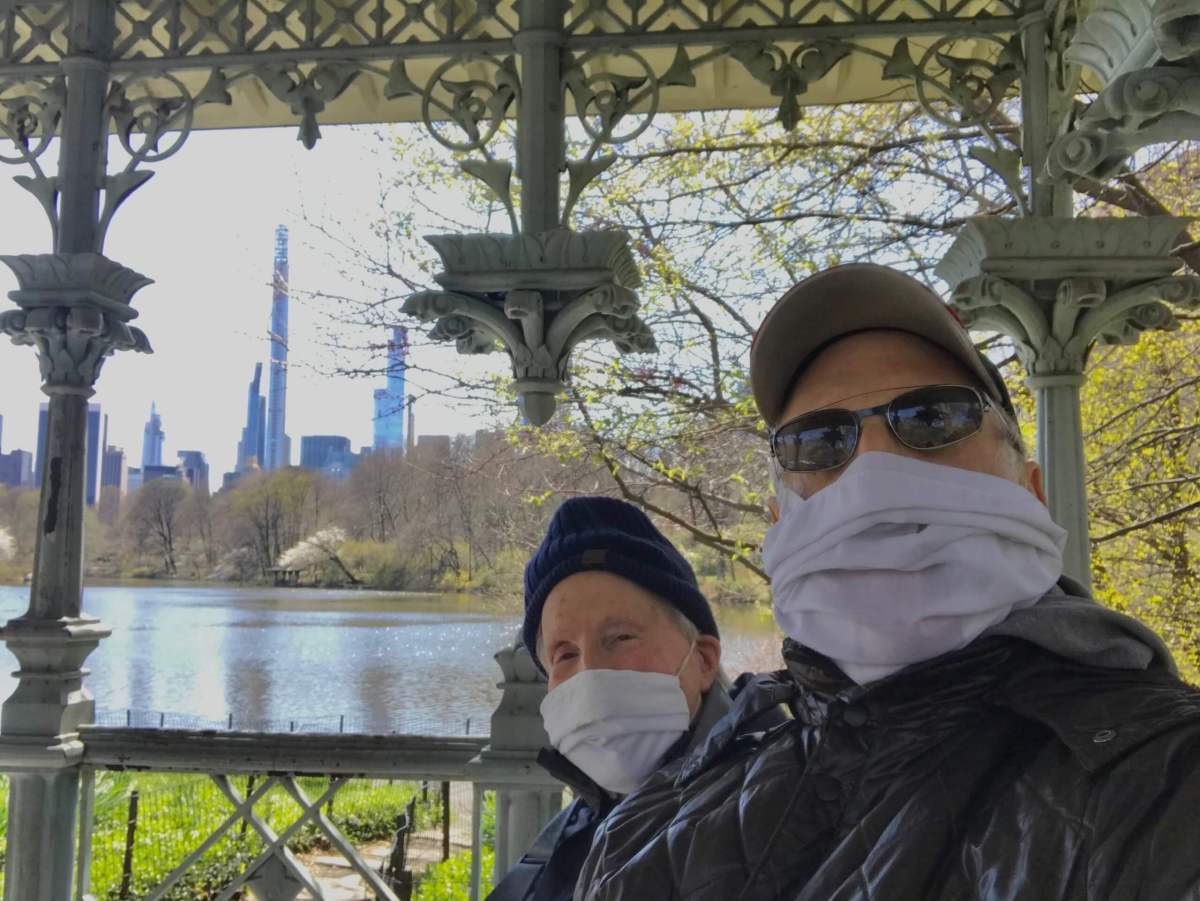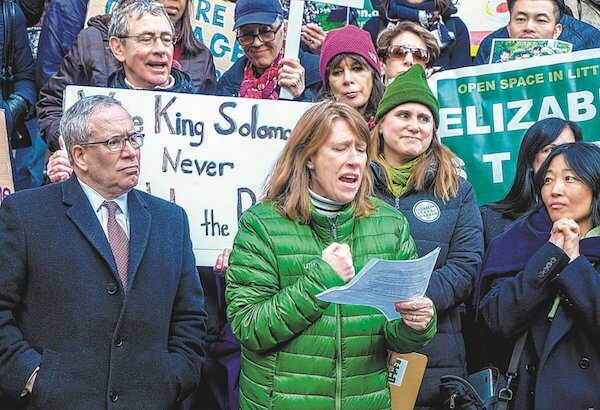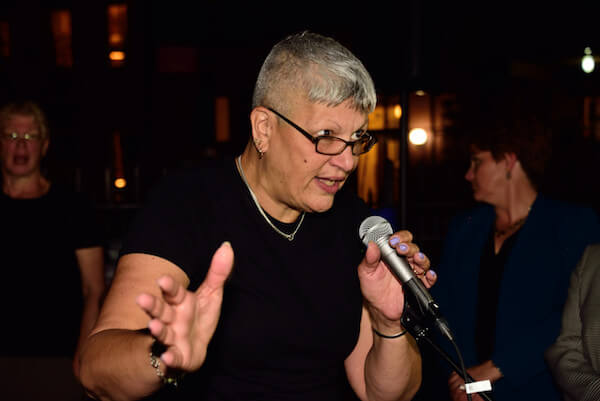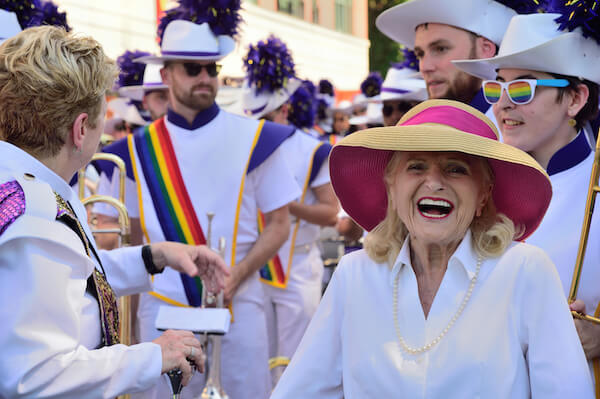While Americans nationwide have experienced significant life changes during the coronavirus era, LGBTQ seniors have also been coping with an array of unique hardships of their own while also confronting the elevated health risks they face due to age-related co-morbidities.
The pandemic led to a spike in food insecurity among seniors during the earliest days of the crisis and the drawn-out stay-at-home guidelines have escalated feelings of loneliness, underscoring the impact the virus has had on a population that is already marginalized.
“Of course food insecurity was a problem for a lot of LGBT elders prior to this and then this just exacerbated it,” said Steven Wilkinson, the senior director of programs and services at Advocacy & Services for LGBT Elders (SAGE), which serves queer seniors in the US and is headquartered in New York City.
While seniors are at elevated risk of severe coronavirus cases or even death, there is also a significant share of queer seniors who are also HIV-positive and immune-compromised. SAGE clients who are especially vulnerable have avoided getting sick by refusing to leave their homes throughout the crisis, which presented new dilemmas: Those who were accustomed to eating meals at senior centers could no longer do so and many could not to simply order carry-out or delivery food frequently as an alternative.
During the early days of the crisis SAGE handed out five grab-and-go meals to their members every week — two meals on Tuesday and three meals on Thursday — but the city Department for the Aging (DFTA) stepped up and rolled out a new delivery program at the end of March: Instead of having to leave their apartments and risk infection, those who go to senior centers and are 60 years or older get five meals per week delivered directly to their homes — though some folks say they’ve had difficulty connecting with that option.
Wilkinson said SAGE started preparing for the crisis three weeks before the mid-March shelter-in-place order, and now, even as the organization’s staff works from home, the team has focused its efforts on checking in with their members, ensuring adequate food delivery and services, continuing classes and programs virtually, and establishing ways that clients can communicate with each other through video chat or phone calls in a broader effort to reduce social isolation.
“Now that food is being addressed, we’re dealing with people who are feeling socially isolated,” Wilkinson said. “The calls that were five minutes now can run 30 or 45 minutes because they’re missing their friends at centers and they’re missing just being social.”
To that end, dozens of SAGE’s existing programs are continuing on a remote-only basis, including exercise classes, writing classes, Spanish and English as a second language, and support groups.
The social distancing requirements that have bred loneliness were implemented abruptly out of necessity. At senior living environments such as Stonewall House, an LGBTQ-friendly residential building in Fort Greene, Brooklyn, that is operated by SAGE, no guests are allowed in the building, there are no deliveries except to the front desk, and SAGE staffers go door-to-door twice per week to check on residents, hand out masks, and distribute bags of food from local pantries.
LGBTQ seniors who spoke to Gay City News have echoed the concerns of many of their cohorts. Out lesbian native New Yorker Lujira Cooper, a 73-year-old writer and student — she is working on her second bachelor’s degree and already has a master’s degree — lives alone in Manhattan and has been receiving food deliveries. She only goes out about a few times per week for necessities and, like others, she has felt the impact of the crisis: Although she considers herself to be more of a “hermit,” the social isolation has become so profound that she has found herself yearning for more in-person interaction.
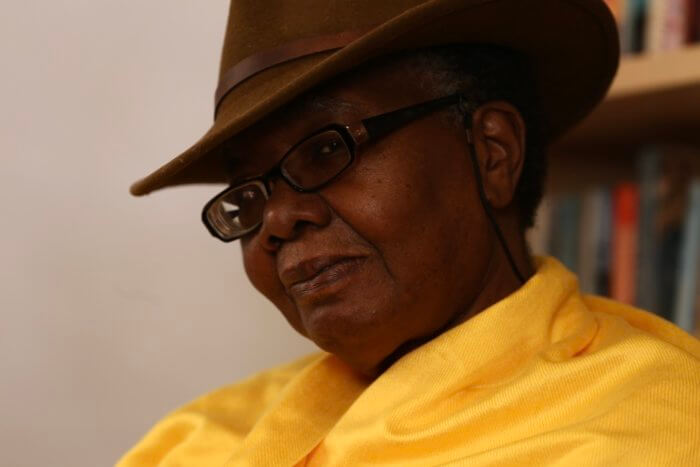
“I miss people,” said Cooper, who has had to maintain social contact with others on a virtual basis as of late. “I miss talking, having face-to-face conversions, and I miss being in my writing group. I just miss being out and watching people. As a writer, I like to watch people and get ideas about creating characters.”
She added, “I like to stay in because I like to stay in, not because I have to stay in. It’s difficult to be forced to stay in.”
Another out senior, 68-year-old Richard Daniels, who lives in Manhattan with his husband, Stanley Goldberg, said the couple has also experienced life changes during the crisis. They have been trying to get food deliveries from the DFTA, but Daniels said “that never materialized.” Daniels conveyed that Goldberg requires a more complicated level of care because he is older.
“So I go to the store much more than he does,” Daniels said.
But, like Cooper, the pair has nonetheless remained engaged. They recently attended a virtual birthday party and participated in a virtual Seder dinner, and Daniels has maintained a busy schedule participating in virtual programs via SAGE, including support groups, meditation groups, and yoga classes.
Those who work with seniors also have had to grapple with the reality that not everyone can afford the devices or internet connection necessary for virtual socialization. Other seniors also face barriers because they might not be as technologically-savvy as others, preventing them from participating in video chats.
SAGE is continuing to explore ways to bring queer seniors together, regardless of those issues. Among those ideas include the possibility of distributing devices to clients who lack the equipment to participate. Another way is to foster communication by phone instead of video conferencing.
“Some tend to call into groups, so some support groups [require] a lot of phone work with people on the conference call,” Wilkinson said. “At least they’re connecting and that’s a technology they’re familiar with.”
That kind of improvisation in the face of an unprecedented crisis is not unique during a time when people worldwide have had to scramble to make necessary adjustments on the fly. Now, many weeks into a crisis that has slammed New York and expanded to all corners of the nation, queer seniors are among those who are looking forward the most to the time when the virus is in the rear-view mirror. But they have collectively shown great resilience — even in the face of a crisis during which they have been among the most vulnerable.
Daniels, for example, said he is thankful that he and his husband had moved into the same apartment after having bounced back and forth between their respective homes for a long period. And Cooper, who is single, is looking at her own situation with a dose of optimism.
“I saw an article saying it’s hard being single during COVID-19, and I agree with that to a certain extent,” Cooper said. “But if you’re living with somebody, you can go stir-crazy living with them. Suppose living with an abusive person? I’m glad I live by myself. I don’t want to live with people. I said I’ve been there, done that.”
To sign up for the Gay City News email newsletter, visit gaycitynews.com/newsletter.

